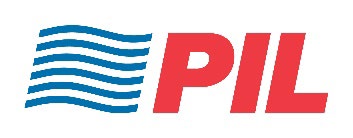
Pacific International Lines (PIL) has launched its learning and development centre of excellence, the PIL Academy, to provide training in maritime and transport logistics for all its employees. The academy aims to strengthen workforce capabilities and future proof careers. It will collaborate with organisations and technology partners to develop a holistic curriculum with accredited courses that will benefit the company and industry.
Officiating the launch of the PIL Academy as the Guest of Honour was Mr Chee Hong Tat, Singapore’s Minister for Transport and 2nd Minister for Finance, together with PIL’s Executive Chairman Mr S.S. Teo, and CEO, Mr Lars Kastrup.
Minister Chee said, “Singapore aims to be a global hub for maritime talent development, leveraging on our strong tripartite partnership between the government, industry and unions. As the global maritime industry embraces new challenges such as digitalisation and decarbonisation, Maritime Singapore must continue to upskill and reskill our workforce so that workers can remain relevant and competitive. The PIL Academy is an important step forward to achieve Maritime Singapore’s goal of developing a future-ready workforce.”
As the 12th largest shipping carrier in the world and Southeast Asia’s largest homegrown liner, PIL employs around 8,000 employees including 4,000 seafarers around the world. The academy aims to provide structured and customised training to all its employees, taking into account their diverse backgrounds and varied training needs. This will not only enhance the capabilities of the company for the long-term but also contribute to growing the industry’s competencies.
The holistic curriculum ranges from technical courses in fleet and vessel operations; safety, quality and productivity; maritime, finance and commercial; sustainability and decarbonisation to softer skills in leadership, innovation and communications.
Lars Kastrup, CEO of PIL said, “The PIL Academy is part of our people-centric and future-focused commitment to invest in the training and development of our employees. PIL is focussed on the upskilling, career development and international mobility of our employees, as well as supporting sea-to-shore career progression.
“We aim to enhance their capabilities and future proof their careers, while ensuring we have business sustainability, increased productivity and innovation at PIL. As PIL transforms into a stronger, more efficient, innovative, sustainable, and future ready organisation, we are empowering our employees to propel the company ahead through PIL Academy’s structured and comprehensive programmes.
“The PIL Academy will also support our Management Associate Programme and provide a smooth integration of new talents into the company in Singapore and abroad.”
PIL Academy Partnerships
As a start, PIL Academy has signed Memorandums of Understanding (MOUs) to enhance the skills of its workforce, cultivate maritime collaboration and develop training expertise.
It signed an industry-first MOU with the Singapore Institute of Technology (SIT) to jointly develop micro-credentials for the Competency-based Stackable Micro-credential (CSM) pathway for PIL employees. Participants are able to choose the specialist certificates that best fit their current professional development and potentially stack them towards a degree or a higher qualification. PIL Academy and SIT will co-develop micro-credentials related to maritime, and conduct continuing education programmes and workplace learning projects.
Professor Chua Kee Chaing, President at SIT said, “This collaboration presents a significant opportunity to address the evolving needs of the Maritime sector. Driven by rapid technological advancements, digital transformation, and the industry's focus on sustainability, the demand for future-proof skills is growing rapidly. By partnering PIL, we can develop and deliver micro-credentials and courses relevant to the needs of the workforce to equip them with the latest knowledge and skills to thrive in this dynamic landscape. This MOU underscores SIT’s commitment to industry collaboration and knowledge co-creation, ultimately contributing to a future-ready maritime workforce in Singapore and the region.”
To harness digital learning, PIL Academy is partnering with JobKred, a skills management software company, to automate skills planning, talent agility and capability deployment. With technology-based learning, employees have the flexibility to learn at their own pace while juggling work commitments.
In addition, PIL Academy will offer bespoke diplomas in maritime studies through their MOU with the Maritime Training Academy, an international leader in supplying distance-learning marine diplomas. The collaboration will enable students to choose from a diverse portfolio of short maritime courses developed by experts in their field.
Dr Victor Goh, Dean of the PIL Academy, said, “We aim to provide a smart learning environment and foster a culture of learning that excites employees in their skills development. Our systematic approach will enable employees to have a common baseline of skills and knowledge, which helps ensure a consistent and high-quality performance across the company. In addition, the academy provides a variety of pathways for our staff to grow their career and excel in the maritime transport and logistics sectors.”
Smart Learning Environment
The PIL Academy will provide smart learning through in-person, hybrid, and online lessons, as well as work environments that enable active, individual learning experiences. An advanced technology-enabled Learning Studio, and Innovation Lab have been set up for participants to interact, communicate, discuss presentations, and engage with resources while working in groups across the globe.
Interactive learning platforms to foster collaborative learning, a library of easily accessible resources, and digital channels actively promulgating learning lessons will act to promote a culture of workplace learning and engagement.
The PIL Academy is an essential pillar for the growth of the company, providing flexible learning for employees with competency-based courses; leveraging technology to track, retain and develop talents; creating smart learning environments; and championing innovation.
source: PIL
Please Contact Us at:






